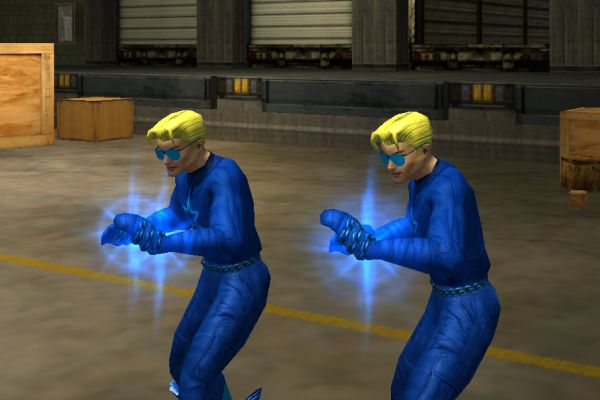
Today is fluffy entry! We all know that parallel worlds only exist in science fiction and such. (Of course, so did communications satellites and flat-screen TVs…)
Not only are online roleplaying games becoming more and more lifelike: The real world is also becoming more like one of those games. (Or rather, our image of the real world is changing to that. It seems reasonable to assume that reality itself does not change.) Recently, science seems to verify that there is a lower limit to size. Particles cannot be divided into smaller particles forever: The so-called Planck size puts an absolute limit on how small things can physically be, kind of like the pixels on a screen limit the graphics of video games. Some scientists also claim there is a Planck Time, a smallest possible unit of time, playing a similar role in reality as the clock frequency of a computer.
Real life seems to have gotten the occasional upgrade as well: When I was a kid, it was doubtful whether Earth could actually feed 5 billion humans. Now we are 7 billion and produce enough food for 10 billion, although much of the food is wasted, some is used for “biofuel” and some is lost in transport. The laws of nature are supposedly the same, but the software – the human mind – has been upgraded. This is superficially similar to how a multiplayer online game is upgraded to handle more simultaneous players as it becomes more popular. And human life has certainly become popular lately.
So far, though, we have not seen instancing in real life. In MMORPGs, instancing was spearheaded by City of Heroes 8 years ago these days, and has later been adopted by other games both older and newer. In CoH, most missions were “door mission” which you entered through the front door of a more or less random office, warehouse or cave opening. But even if two teams went through the same door, they came into different – sometimes strikingly different – locations, each of them unique to the team.
In addition, CoH had zone instancing. A particular part of the city, such as the newbie area Atlas Park, might get so full of heroes that there would not be enough villainy for them all to stop, not to mention that the abundance of special effects and unpredictable movements might slow down the computers. So past a certain number of heroes, the next arrivals would go into a new instance called Atlas Park 2, and after that Atlas Park 3 etc.
It seems unlikely that we will have instancing in real life! But if we did, what form would it take? I have of course given this much thought. (As Scripture says: “The eyes of the fool is at the ends of the world.”) The result is a fictional “n-space”, based on an utterly imaginary second time dimension. Modern cosmology assumes that there may be an infinite number of alternate universes, that the possible universe branches continually every time two different outcomes are possible. One where Schroedinger’s cat is alive, one where it is dead, and so on. If it were possible to travel sideways through these universes (which would require a second time dimension, as far as I can see), we could get to worlds where humankind failed to arise or survive, and claim them for ourselves. (Of course, the victorious Nazi empire might already have done that – but probably not, since most major scientific breakthroughs seem to involve Jews at some stage or another…)
Right now the whole concept is as fictional as can be. I may, in fact, use it in some of my fiction; I have several half-baked ideas to that effect. One important factor is the cost and convenience of traveling between timelines. It would probably require some kind of base station, although it would be interesting if one could have personal worn shifting devices or at least car devices allowing one to shift the car to another timeline. This would probably not be safe enough to be widespread, even if it were technically possible. (Besides, the more impossible the technology, the more impressive it should look, right?). A more reasonable approach is building a large gateway through – a portal to the parallel world. If the cost of sending things to a nearby world was similar to a trip to the moon, it would probably mainly be used for science and to bring back exterminated species, stuff like that.
If it was feasible to keep a permanent “gate” to an empty instance of Earth, where you could drive through for a modest fee, we could start building a new city in the same place as an old, dig a new mine in the same place as one we had emptied etc. I really doubt anything like that will ever happen in real life. Then again, now that the idea is out there, who knows. There is a saying in Genesis that when humans all have one language, nothing will be impossible for them. Perhaps it is safer for all if the Chinese stick to Mandarin for a while yet…
